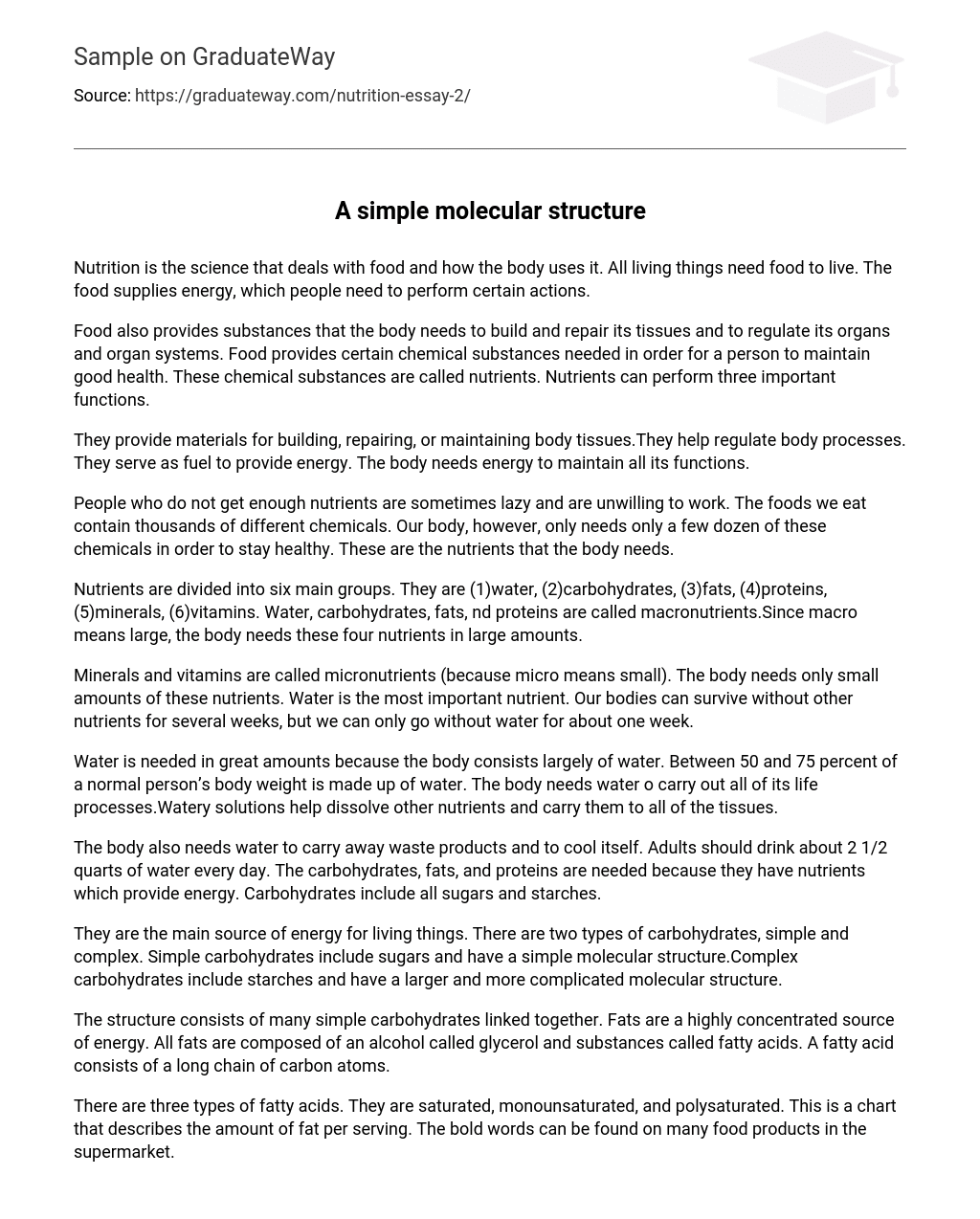Nutrition is the scientific study of food and its utilization by the body, acknowledging that all organisms require food for survival as it provides necessary energy for various activities.
Food plays a vital role in the growth, control, and mending of the body’s tissues and organs by providing necessary nutrients. These nutrients are critical for sustaining overall well-being and performing three crucial functions.
Cells in the body have multiple functions. They supply materials for constructing, fixing, and preserving body tissues. Moreover, they control bodily processes and act as a source of fuel for generating energy, which is essential for proper body functioning.
Insufficient nutrients can lead to a decrease in energy and productivity. It is important to understand that the chemicals present in the foods we eat vary, but our body specifically needs certain chemicals, known as nutrients, for maintaining overall health.
The six main nutrient groups consist of water, carbohydrates, fats, proteins, minerals, and vitamins. These macronutrients – water, carbohydrates, fats, and proteins – are essential in large amounts as they are considered “macro” nutrients.
Micronutrients, comprising minerals and vitamins, are vital for the body in small amounts. Among these nutrients, water is of utmost importance. While our bodies can sustain without other nutrients for weeks, the ability to survive without water is limited to approximately one week.
Water is crucial for the body because it constitutes a substantial proportion of our total weight, varying from 50 to 75 percent. It plays a vital role in facilitating various biological processes and assisting in the transportation of nutrients within tissues, as aqueous solutions effectively dissolve and transport other nutrients.
The body needs water to regulate temperature and get rid of waste products. It is advised that adults drink around 2 1/2 quarts of water daily. Carbohydrates, fats, and proteins are crucial as they supply necessary nutrients that provide energy. Carbohydrates include sugars and starches.
Living organisms rely on carbohydrates as their primary source of energy. Carbohydrates can be categorized into two types: simple and complex. Simple carbohydrates, such as sugars, have a less complicated molecular structure, while complex carbohydrates like starches have a larger and more intricate molecular composition.
The composition of the structure involves multiple simple carbohydrates connected together. Fats serve as an extremely concentrated energy source. Every fat is composed of glycerol, an alcohol, and fatty acids, which are substances. Fatty acids consist of a lengthy chain of carbon atoms.
The following chart exhibits the fat content per serving and includes three types of fatty acids: saturated, monounsaturated, and polyunsaturated. These terms are commonly found on food products in supermarkets.





